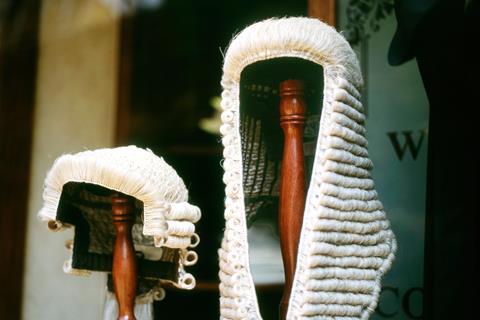The Judicial Appointments Commission has been prevented from making any submission in a solicitor judge's attempt to push through a freedom of information request about recruitment competitions for the bench.

In a long-running dispute, His Honour Judge Abbas Mithani is challenging the JAC’s refusal to answer FoI requests. JAC's grounds are that the requests involved personal data and information whose disclosure ‘would otherwise prejudice or be likely otherwise to prejudice the effective conduct of public affairs’.
At an appeal hearing in September 2023, the commission apologised after discovering that information it refused to disclose had already been published online. In January this year, a judge directed that the appeal be reheard before a new panel.
Following a case management hearing earlier this month, Upper Tribunal Judge Neville, sitting as a judge of the First-Tier Tribunal, summarily determined the issue as to whether the information sought by Mithani was exempt from disclosure under section 36 of the Freedom of Information Act.
Read more
Referring to the JAC’s argument that its decision notice should be upheld and no disclosure ordered, the judge said: ‘The respondents’ position…seeks to entirely divorce the decision notice from the question of whether the public authority complied with Part I of FOIA. If correct, it would permit a public authority to turn any appeal into a rolling review, smuggling post-response facts under the temporal bright line with the justification that they are relevant to remedy.
‘I reject that a public authority has any such entitlement. It would entirely undermine the statutory scheme and render the logically prior conclusion of whether the public authority complied with Part I of FOIA otiose.’
The information commissioner, which issued the guidance on s36, was also barred from making any submission in relation to s36.
The factors behind debarring the JAC and information commissioner from putting such a case forward and summarily determining against them were ‘overwhelming’, the judge said. A ‘full inquisitorial examination of the issue…cannot conceivably yield…a different result or be of any wider public benefit’.
This article is now closed for comment.



























4 Readers' comments